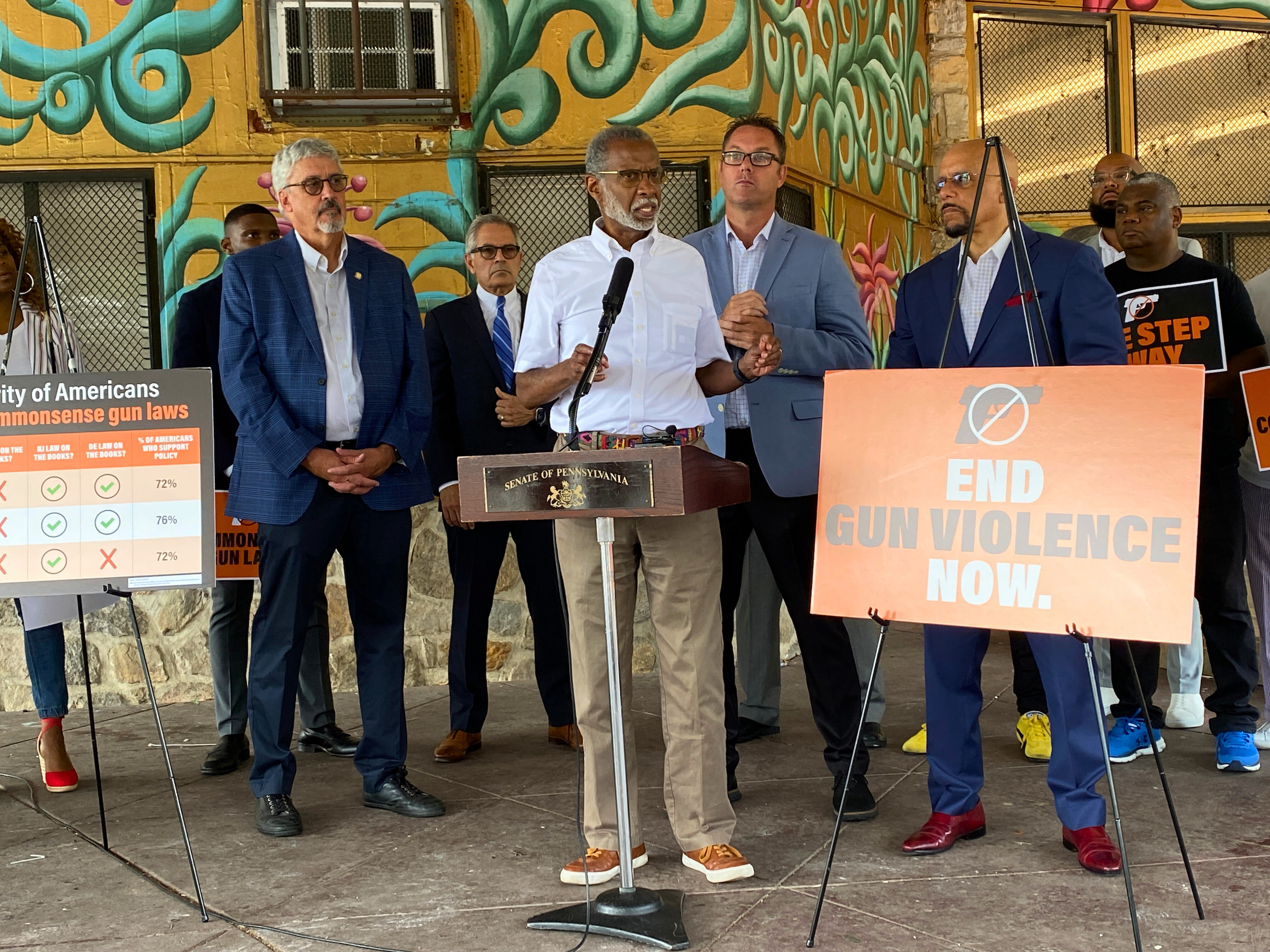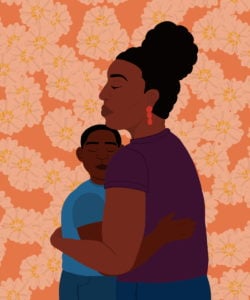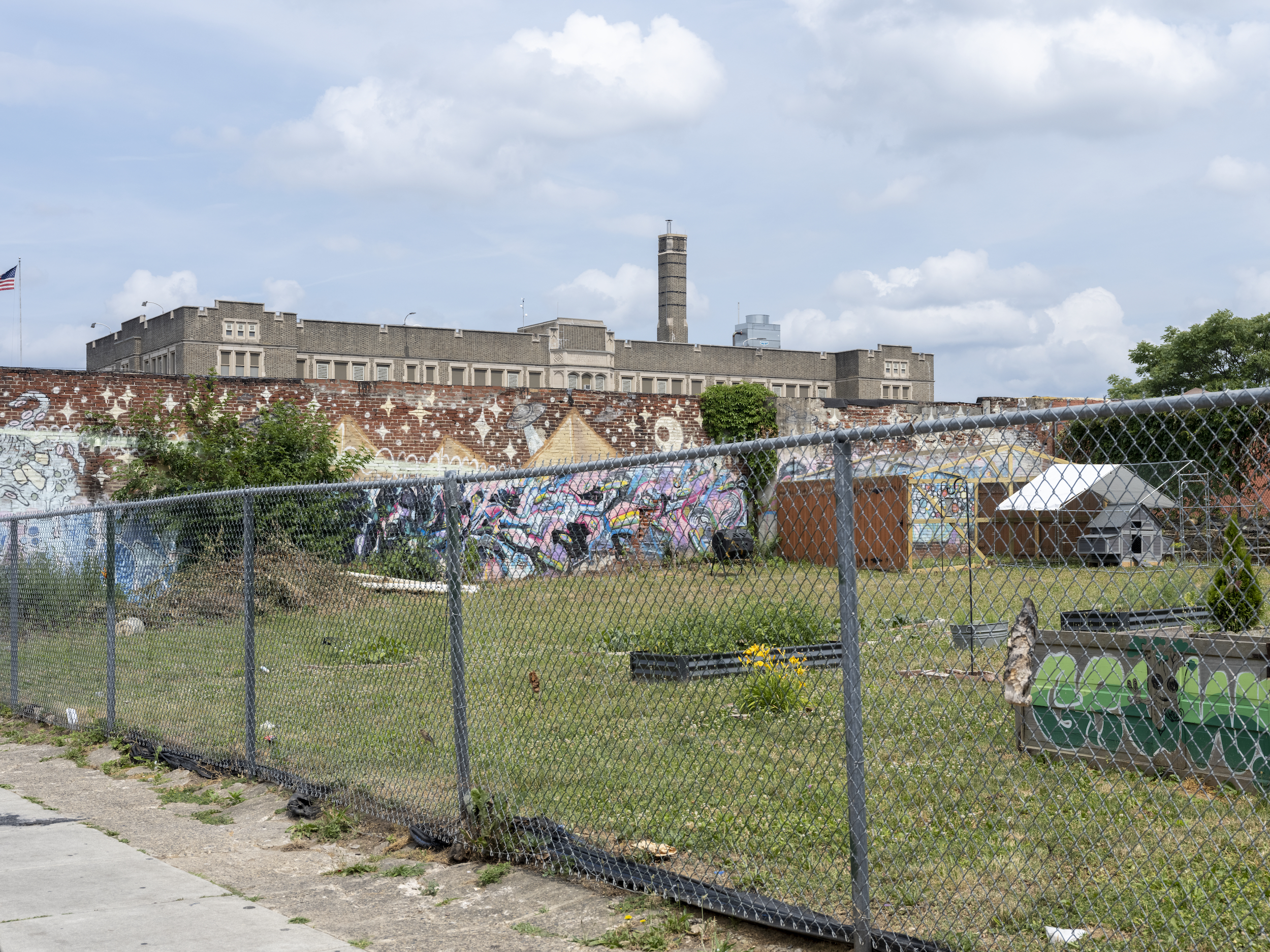On a muggy July afternoon inside Mander Playground in Strawberry Mansion, a high-crime North Philadelphia neighborhood, a gaggle of politicians and community activists gathered in front of news cameras. They were there to call on the Republican-led state Senate to pass two gun violence bills that had recently been approved by the Democratic-led state House of Representatives — and that Pennsylvania Governor Josh Shapiro has pledged to sign.
The measures, if enacted, would allow law enforcement officers to remove guns from people who may be an imminent danger to themselves and others. They would also expand background checks for gun purchasers, said the officials, who included Philadelphia District Attorney Larry Krasner and Philadelphia state Senator Vincent Hughes.
Krasner and Hughes noted that Philadelphia’s shootings and homicides have declined this year compared to the same period last year — a nationwide trend, too. As of July 20, homicides were down by 23 percent, 236 compared to 305 at the same time last year, while nonfatal shootings were down 22 percent, according to the Philadelphia Police Department. Still, the officials lamented that state and local governments need to do much more in the way of prevention. Those efforts, they said, include passing the bills, which currently are four votes short.
Dionne Tyler, who was at the playground to pick up her granddaughter, Quinn Hoskins, 8, from summer camp, was surprised by the contingent of politicians, but not by their message.

As subtle as it may be, she too, has sensed a decline in shootings in the city where her son survived being shot in 2020, and where she works at Temple University Hospital for the Cradle to Grave violence-prevention program, which gives teens a behind-the-scenes tour of the morgue to expose them to the physical, emotional, and social realities of firearm violence.
“From when my son was shot till now, I definitely see a difference, because the group of friends he’s with, only one person has had a really terrible outcome from gun violence,” she said.
“For us, it was hitting home. Every month we would know someone getting shot,” she said of the spike in killings during the pandemic shutdown, during which a record number of Philadelphians were slain between 2020 through 2022. “Now, I don’t always know someone who is affected by it. Only one person this year.”
Still, the emergency room remains a busy place for gunshot victims and the medical staff trying to save them, said Tyler, who is director of operations for anatomical pathology at the hospital. “Everyone is just in constant prayer about it.”
Philadelphia’s slight drop in homicides this year follows an 8 percent drop last year. City officials, criminologists, and community leaders said that while the trend is promising — and likely partially due to the millions of dollars invested in prevention efforts and the end of pandemic restrictions that limited access to social services — gun violence is still at unacceptable levels, claiming too many lives.
“There’s still hundreds of people who die from gun violence, and these people tend to be concentrated in small places,” said Temple University Criminal Justice Professor Jason Gravel. “For these people, the difference in a 20 percent decrease is not necessarily meaningful. They still have relatives, neighbors, and friends dying. So we can’t sit back and say ‘mission accomplished’. We have to keep investing in evidence-based approaches to violence.”
You are not alone
If you or someone you know has been affected by gun violence in Philadelphia, check out our Up the Block resource guide.
Krasner also attributed the decline in shootings to the drop in gun purchases, which peaked during the pandemic. “We’re really only halfway down the mountain from how bad it got during the pandemic, but we are halfway down the mountain despite the astounding levels of tragedies that are going on,” he said of the homicide rate during an interview.
What’s happening in Philadelphia appears to be part of a national trend, according to the Council on Criminal Justice, a nonpartisan think tank. In 30 cities that make homicide data readily available, the number of killings in the first half of 2023 dropped by 9.4 percent compared to the first half of 2022, according to a new study released by the council July 20.
The study’s authors cautioned that the 2023 decline in homicides is still 24 percent higher than in the first half of 2019, before the pandemic and the social upheaval resulting from the police killings of George Floyd and other Black men.
In Philadelphia, for example, there were 137 homicides at this time in 2013, 130 killings in 2014, and 141 in 2015.
Other violent crimes, while down slightly in 2023, are higher than at the same time in 2019, the Council on Criminal Justice study found: Gun assaults up 39 percent; aggravated assault up 8 percent; and robberies up 2 percent.
“Cities across the country are seeing some alleviation in the numbers, but we know that we … must keep at this work,” said Erica Atwood, Philadelphia’s senior director of policy and strategic initiatives in the Office of Criminal Justice and Public Safety.
The $233 million her office will receive from the city’s fiscal budget for the year that began July 1 will be spent on youth programs, blight removal, environmental supports, community engagement, and grants for community groups working to reduce violence, she said.
“We know now that our strategies are having an impact, and we have to continue to completely and fully implement them,” said Atwood, who cautioned that the city’s work may be undermined by the state Legislature’s refusal to implement stronger gun laws.
Indeed, in some parts of Philadelphia, the drop in shootings is a distinction without much of a difference. On July 20, three men, including the son of a celebrated local rapper and podcast host, were gunned down on a street in the Olney section. Devin Spady, 25, the son of Nasir Fard, aka Gillie da Kid, died from two gunshots to the back of the head. The other victims, ages 28 and 31, survived, police said.
On July 18, two women and three men between the ages of 18 and 55 were shot and wounded in the Feltonville section while attending a vigil for a man who was slain July 5, police said. And on July 3, a man randomly opened fire on a Kingsessing street killing five and injuring four. The gunman has been arrested and charged.
“We cannot let our foot off the gas when it comes to stronger gun control and common sense gun laws in the state of Pennsylvania,” Atwood said. “Until we see that, we predict that our numbers will plateau unless we can get a stronger handle on the instruments of crime.”
During the July 19 news conference at Mander Playground, Hughes said the decline in shootings is an indication that “significant work has been going on and is having an impact,” while he reiterated the need for stronger gun laws.
“Something is going in the right direction,” he said. “We cannot give up. What we’re saying in this conversation today at this press conference is, reach out to the Republican-controlled majority in the Senate of Pennsylvania and say, put these bills up for a vote.”
On the same day at Philadelphia’s City Hall, City Councilmember Kenyatta Johnson convened a “Peace Not Guns” forum with teenagers from across the city to hear their ideas for reducing gun violence. Some youth suggested opening more swimming pools and providing more after-school activities.
Jon McKay, founder of Life Outside the Streets, which uses art and education to treat trauma and trains youth to be violence mediators, brought a group of teens. While there may be fewer homicides so far this year, there is not less violence, McKay told The Trace.
“Although we have to count all our victories, crime has increased,” he said. “If you look at theft, if you look at people getting shot in front of their homes, if you look at the details, crime is still rising.”
Christian Diaz, a program coordinator with Philadelphia Youth Basketball, a nonprofit that mixes ball with mentoring and tutoring for students at 20 city schools, also brought a group to the forum. He’s encouraged by the declining shooting statistics.
“Now that COVID is no longer allowing certain justifications, I feel like we’re going to clearly move back to the trend we had from 2015 to 2018,” he said. “I think there’s more hope on the horizon.”
Johnson, chairperson of the City Council’s Special Committee on Gun Violence Prevention, said reducing the rate of shootings further is contingent on continued funding and collaboration between city and state lawmakers, law enforcement, and community stakeholders. “It’s going to take a comprehensive strategy to address this issue: which is prevention, intervention, and enforcement,” he said.
Daniel Semenza, a criminal justice professor at Rutgers University-Camden, concurred that Philadelphia is far from where it should be in terms of reducing gun homicides and nonfatal shootings, despite the decline.
“It’s not the time to say, ‘Oh great, the community programs worked, the change in policing worked, and therefore we can pull back on our investments, and therefore we can pull back on our practices,’” he said. “No, now, in my opinion, is the time to really double down and make sure any of the things we are doing are working, and capitalize on what’s working.”


